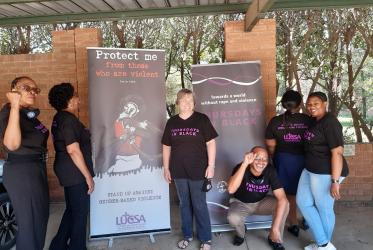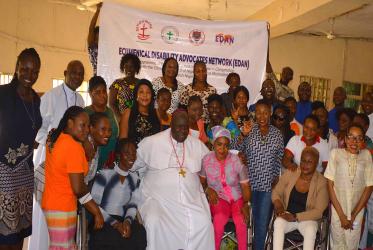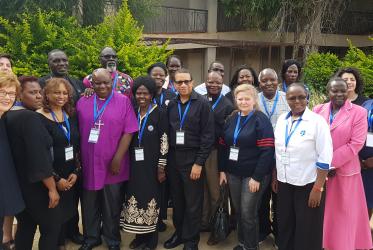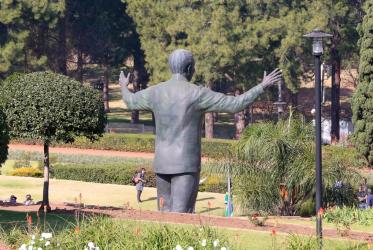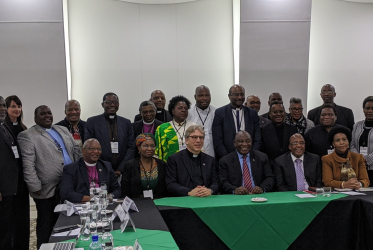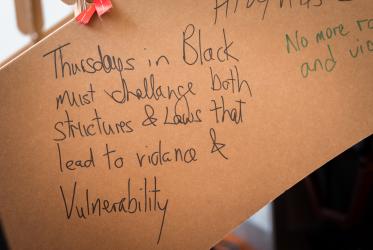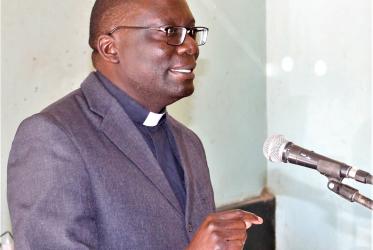Displaying 21 - 40 of 103
South Sudan Church leaders welcome new cabinet
15 March 2020
Listening together to the pain of violent spaces
28 February 2020
South Africans draw hope despite recurring challenges
16 December 2019
WCC delegation meets with South African President Ramaphosa
09 December 2019
South Sudan Council of Churches: peace “is a question of the heart”
11 November 2019
Churches in southern Africa stand against violence, xenophobia
10 October 2019
Rev. Damon Mkandawire: “A man is a gender justice champion”
03 October 2019
African religious leaders express new concerns over South Sudan peace
19 September 2019
Kenya schools invest in young people to end new HIV infections
18 September 2019
When you strike the women, you strike a rock
18 September 2019
Moravian Church in Tanzania launches Thursdays in Black
10 September 2019
Council of Churches in Zambia: “Involve the people in the process”
09 September 2019


